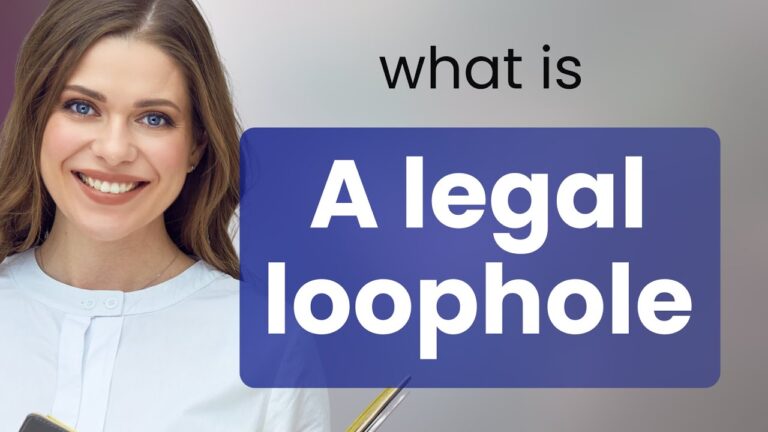Legal loopholes provide people and businesses with ways to legally circumvent rules without breaking them, often through methods unintended by those responsible for creating said law or restriction. These loopholes offer ways around or around it in ways not anticipated by its author(s).
Food chains may use loopholes to avoid taxes on their employees by not classifying them as joint employees – this practice may be legal but is clearly unfair.
1. They Know the Law
Asserting that you are under investigation for DUI charges can have far-reaching effects on both your personal and professional lives, so having access to a skilled lawyer who understands the law and can protect your interests can be invaluable in mitigating its long-term effects.
DUI laws vary by jurisdiction, but their core principle remains consistent: driving under the influence of alcohol or other drugs impairs one’s ability to operate a vehicle safely. While definitions for these substances vary depending on their legal classification (typically illegal drugs or prescription medication), driving while under such influence can compromise driver safety significantly.
Maryland legislators are working to close an apparent loophole in Noah’s Law. Under this state statute, those convicted of alcohol-related offenses must install an ignition interlock device which prevents their vehicles from starting unless they pass a breathalyzer test; but according to advocates including the father of Montgomery County police officer killed by repeat drunk drivers, the law fails to address one key aspect that could save lives.
2. They Know How to Negotiate
A skilled DUI attorney can find legal avenues that enable their client to avoid severe penalties, depending on the specifics of your case. Such penalties could include loss of driving privileges, mandatory Ignition Interlock/car Breathalyzer installation requirements, jail time and substantial fines – not to mention having your criminal record affect future job prospects and making federally-subsidized higher education less accessible.
An experienced DUI attorney will carefully examine all available evidence, scrutinizing details that could work to their benefit during plea negotiations. They might challenge technical aspects of breathalyzer or blood test procedures or the police officer’s justification for initiating traffic stops, among other possible targets for challenges.
Attorneys with expert insight may even convince the prosecutor to offer reduced charges or penalties, attesting to their abilities in resolving disputes.
3. They Know How to Rebut Evidence
DUI conviction can have severe legal repercussions, including jail time, fines, and license suspension. Experienced lawyers understand how to use all available legal tools to reduce the impact of DUI charges on their clients – such as plea bargaining for lesser offenses such as reckless driving that have lesser penalties than DUI.
Skilled DUI lawyers understand how to challenge evidence used against their client. They can argue that breathalyzer tests may not be as reliable, due to factors like medical conditions or dental debris skewing the results, and also present testimony suggesting the smell of alcohol might actually come from other substances–such as hops in beer.
Representing themselves can also get crucial evidence suppressed by alleging the police did not comply with procedures when collecting and storing blood samples, thus weakening prosecution’s case and increasing your odds of a favorable outcome.
4. They Know How to Get a Plea Deal
As part of DUI proceedings, prosecutors may offer plea agreements. A skilled DUI lawyer can use their negotiation skills to get their client the best deal.
Attorneys can use their knowledge of law to keep crucial evidence out of court. For example, if an officer questions someone without reading them their Miranda rights first, an attorney could argue that any statements obtained as a result cannot be used as evidence in court proceedings.
Skilled DUI lawyers can also work to protect their client from unnecessary risk by not accepting early plea offers or by waiting until trial day before accepting plea bargains.
Driving under the influence of any substance endangers lives on the road. An intoxicated driver shouldn’t be able to avoid prosecution by exploiting legal loopholes; thanks to Senator Fuschillo, legislation will close this loophole and help save lives.
